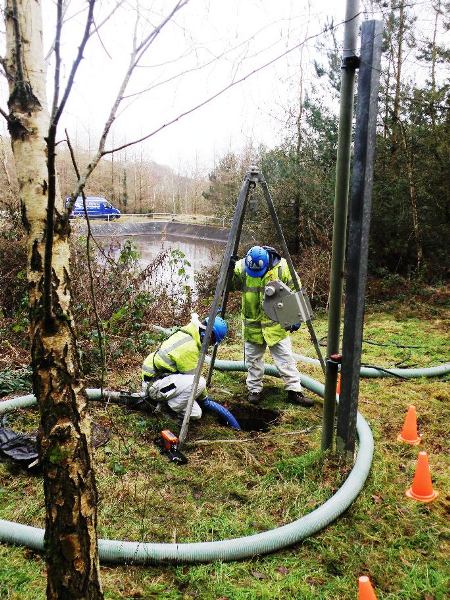Interceptors Unplugged

Surface water drains, including land drains and most road drains, are designed to carry only uncontaminated rainwater to a local river, stream or soakaway. Run-off which is contaminated by silt, chemicals or oil, could pollute the watercourse.
That’s why interceptors, also called oil separators, are fitted to surface water drainage systems — to protect the environment from pollution. These units separate the oil from the surface water, so that the water can be safely discharged to the waterways, whilst the oil is removed by a specialist handler and disposed of as hazardous waste.
Sites which require interceptors include car parks larger than 800m2 or with 50 or more parking spaces, smaller car parks discharging to a sensitive environment, areas where goods vehicles are parked or manoeuvred, vehicle maintenance and wash down areas, roads, industrial sites where oil is stored or used, refuelling facilities — and any other site with a risk of oil contamination.
So fitting interceptors is the answer. And that is all well and good but (and it’s a big but) to be effective, they must be not only correctly designed and installed but regularly maintained to comply with best practice set down by the Environment Agency in its Pollution Prevention Guidelines (PPG3).
Alan Wallis, Operations Director of Lanes, explains: “To prevent pollution and minimise costs, a separator needs to be managed properly. Every six months, or in accordance with manufacturer’s instructions, experienced personnel should physically inspect the integrity of the separator and all its mechanical parts; assess the depth of accumulated oil and silt; service all electrical equipment such as alarms and separator management systems and check the condition of any coalescing device and replace it if necessary. This is in addition to the regular emptying and disposing of the waste according to regulations. Of course, heavily used or high-risk sites might require more frequent inspections.”
Motorway service stations across the country benefit from quarterly visits by Lanes to maintain their interceptors and grease traps. Lanes’ Ben Forsyth says: “We’ve been doing this for many years through SGP, the property and fm contractor. Clearly good interceptor maintenance is important anywhere, but so near the motorway, any kind of spillage caused by a malfunction or overflow would be particularly disastrous.”
As well as interceptor maintenance and emptying, Lanes provides pollution control technology, where appropriate, through its partnership with leading authority, Aquasentry.







